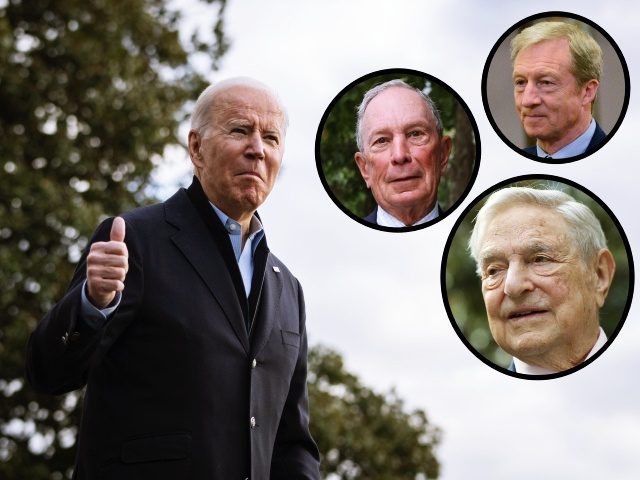Democrats say cutting hundreds of billions of dollars in taxes for mostly wealthy income-earners in coastal states is “essential” to getting reelected in this year’s midterm elections.
The Ingraham Angle 1/12/22 JOE BIDEN'S POLL PLUMMET
Nat’l Economic Council Head: December Inflation Report ‘a Welcome Deceleration from October and November’ and ‘Reflects Some Progress’
On Wednesday’s broadcast of MSNBC’s “Stephanie Ruhle Reports,” National Economic Council Director Brian Deese said that while current price increases are too large, the December inflation report “was actually a deceleration, a welcome deceleration from October and November.” And “that reflects some progress.”
Deese said, “What we saw was the 0.5% increase month-over-month was actually a deceleration, a welcome deceleration from October and November. And that was driven by a reduction in energy prices, principally gas prices, which is good news, as well as a reduction in the rate of increase in food costs, particularly food at the grocery store. So, that reflects some progress. At the same time, you’re absolutely right. The price increases are too high and they are affecting families’ household budgets and their outlook on the economy, which is why we are focused on the things that we can do to sustain that strong growth that you’re saying, sustain a strong economy, a sustainable economic recovery, while going at prices.”
Follow Ian Hanchett on Twitter @IanHanchett
DO YOU REALLY THINK THE RICH ARE WORRIED OL' JOE WILL NOT TAKE CARE OF THEM?
'The Five' react to Americans fed up with Biden's disasters
You Won't Believe What Just Happened To INFLATION (latest Details)
Democrats: $625B Tax Cut for Wealthy Elite ‘Essential’ Ahead of Midterms

Democrats say cutting hundreds of billions of dollars in taxes for mostly wealthy income-earners in coastal states is “essential” to getting reelected in this year’s midterm elections.
Summers: ‘Fundamentally Unsustainable’ Inflation Situation Was ‘Foreseeable’ and Believing It Was Transitory Has Put Us ‘Way Behind’
On Wednesday’s broadcast of CNN’s “OutFront,” economist Larry Summers said that there is “a real problem” with inflation that “was a foreseeable problem a year ago,” and “we’re looking at a situation right now that is fundamentally unsustainable.” But “by continuing to believe this narrative of transitory inflation and it’s all going to be okay, we’ve gotten ourselves way behind where it’s much harder to deal with than it would have been if we had understood more fully what our problem was six months ago.” Summers also argued that there’s “a substantial risk” of “a wage-price spiral, in which higher wages lead to higher prices and higher prices lead to higher wages and we’re off to the races.”
Summers said, “Look, we have a real problem. I think it was a foreseeable problem a year ago, given the amount of money that was infused into the economy. But it took seven years after the Vietnam War started to get inflation up to this level. Inflation’s now 50% higher than it was when Richard Nixon imposed price controls to stop what was seen as terrible inflation at that time. I don’t think there’s much question that we have an inflation problem that’s not usefully thought of as simply a transitory issue. The real concern is that we’re going to get a wage-price spiral, in which higher wages lead to higher prices and higher prices lead to higher wages and we’re off to the races. And that is still a substantial risk starting from where we are. I can’t conceive that we’re going to see the kind of 16% mortgage rates that you referred to from the early ’80s, Erin. But I sure do think that interest rates are going to have to rise significantly from where they are. And we’re going to have to get used to the fact that our problem is not that our economy is too weak. Our problem is that our economy is too strong. There’s too much demand, relative to the supply capacity of our economy. There’s not a lot we can do to change the supply capacity in the short run and that means that we don’t want to have just rising inflation, we’re going to have to limit demand.”
He added, “I think there’s every reason to expect that interest rate increases are going to be necessary. I think it’s hard to believe that, given that we’ve got 7% inflation, raising rates from 0 to 1 or even from 0 to 2 is going to be sufficient to contain the inflation. The main scenario where you wouldn’t have to raise interest rates is one that nobody wants, where we start to see our financial institutions and our asset prices implode. If you saw a sudden decline in stock prices, for example, then you wouldn’t want to be raising interest rates, but that’s hardly an outcome that would suggest economic stability or economic health. So, I think we’re looking at a situation right now that is fundamentally unsustainable. And the question is going to be can we achieve a gradual braking of the economy that permits this overheating to ease and inflation to come down? And I sure hope we can and I’ve got a lot of respect for Jay Powell, but by continuing to believe this narrative of transitory inflation and it’s all going to be okay, we’ve gotten ourselves way behind where it’s much harder to deal with than it would have been if we had understood more fully what our problem was six months ago.”
Follow Ian Hanchett on Twitter @IanHanchett
No comments:
Post a Comment